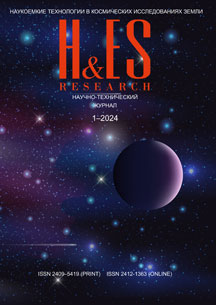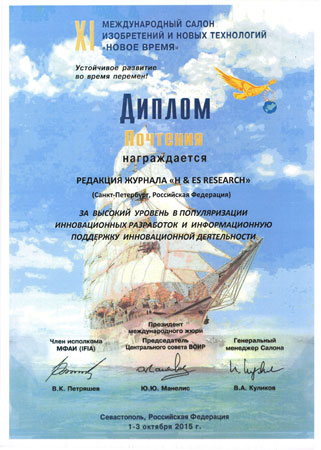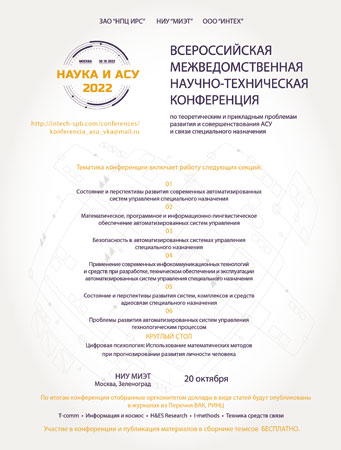Modern models of military equipment that are in the arsenal of the Russian Aerospace Forces are technical complexes and contain a significant amount of electronic equipment. The most critical operation in recovering failures is technical diagnostics, the implementation of which is aimed at determining the likely places and causes of malfunctions.
Information support for technical diagnostics is currently organized on the basis of a paper set of operational documentation, the use of which is associated with significant unproductive time delays. At the same time, well-known automation systems for information support of technical diagnostics are focused on providing diagnostic information about failures in an “implicit” form, i.e. reflect information on the reference state of the equipment, and do not directly automate the procedure for determining the cause of a malfunction by its diagnostic features. The use of the diagnostic model, reflecting the interconnection of the signs and causes of malfunctions of electronic equipment, will increase the level of automation of information support for technical diagnostics by constructing an interactive diagnostic system with an interface that provides query input and response generation in natural language constructions. The aim of the work is to create a method for formalized conceptual presentation of faults in the form of an explicit diagnostic frame model, which acts as an information resource of the dialogue diagnostic system, which can significantly reduce the time required to determine the probable places and causes of malfunctions of electronic equipment of complex technical complexes and systems. The novelty of the proposed approach to the conceptual formalization of malfunctions of electronic equipment is that it allows you to directly operate on the terms and concepts of the subject area of technical diagnostics in natural language constructions, without the need for their transformation into mathematical notations, representing signs of malfunctions in information systems of a traditional structure. The presentation of faults, made on the basis of the proposed approach, can act as the main resource of the automated system of information support for technical diagnostics, functioning on the principle of "question-answer" in a naturally similar language. The construction of an information interface that ensures the connection of the presented diagnostic model with the service personnel by means of requests and answers in a naturally-similar language, provides a significant reduction in the time of technical diagnostics, which reduces the overall recovery time of complex technical complexes and systems.



















